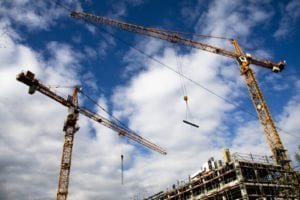Lack of adequate physical infrastructure is one of the major bottlenecks standing in the way of integration to enable common and broad based development in Africa.
Despite robust GDP gains by many countries in recent years, Africa’s staggering infrastructure inefficiencies have been choking integration efforts, stunting growth and sapping national resources, public and private. This was heard at the Seventh Conference of African Ministers in Charge of Integration, held in Swaziland to discuss infrastructure and integration in Africa. The experts meeting heard of some of the progress realized to date, at regional level, in terms of the infrastructure and integration agenda. But despite progress, African infrastructure development and integration remains largely inadequate and fragmented.The road access rate in Africa is only 34%, compared with 50% in other parts of the developing world and transport costs are 100% higher. Only 30% of Africa’s population has access to electricity, compared to 70 to 90% in other parts of the developing world. Water resources are underused with only 5% of agriculture under irrigation. The internet penetration rate is a mere 6%, compared to an average of 40% elsewhere in the developing world. Deficient infrastructure in today’s Africa has been found to sap growth by as much as 2% a year.
African Union Commissioner of Economic Affairs Dr Anthony Maruping urged more rapid, sustainable and inclusive growth and for Africa to diversify its economy and move away from exporting commodities. In his address, he said Africa should be “cautious about distracting flattery”, such as the fact that Africa has had 6 out of the 10 fastest growing economies, while there are 54 member states of the African Union. “Let’s keep focused, growth in Africa is still driven by commodities,” he said. However, Dr Maruping highlighted that the continent is not starting from scratch as it seeks to implement infrastructure development programmes in line with its Agenda 2063. “We have today continental frameworks, such as the Programme for Infrastructure Development in Africa, the Comprehensive Africa Agricultural Development Programme, the strategy for the Accelerated Industrial Development of Africa and the current efforts by the African Union to set up a continental free trade area.”






